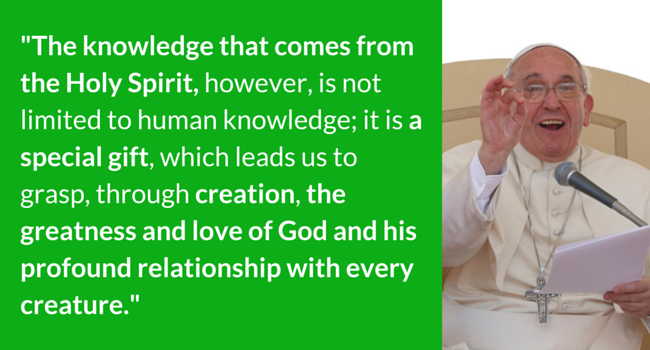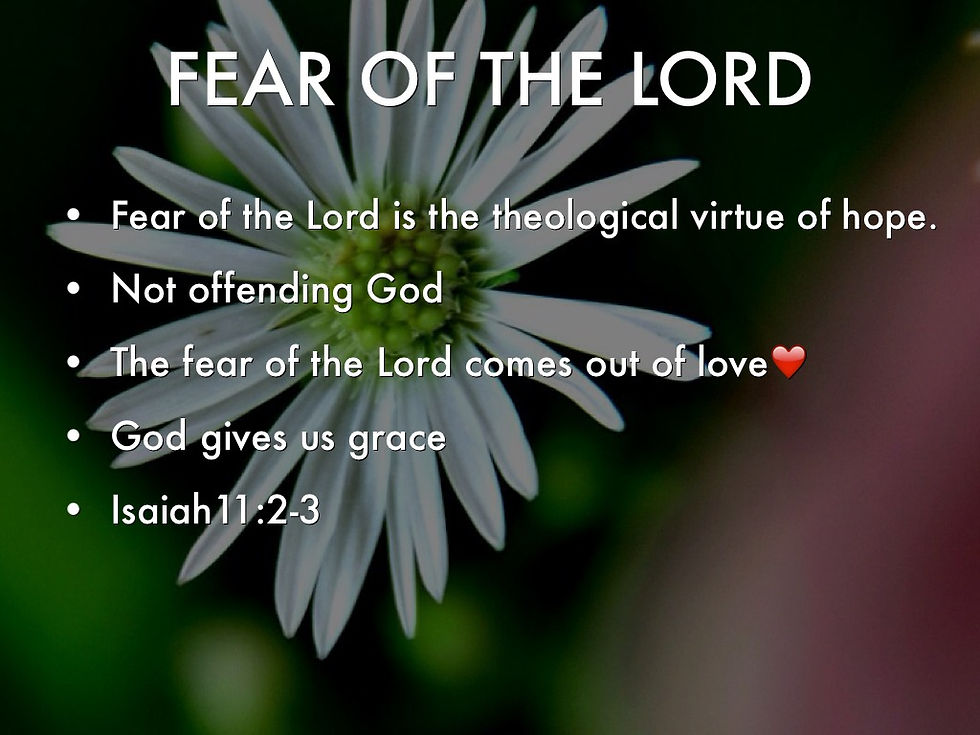This week, we conclude our series on the gifts of the Holy Spirit having celebrated last week the great feast of Pentecost
THE GIFT OF COURAGE

We see this gift of courage active in the life of Jesus himself. He was a man of great courage. He was not afraid to speak when what he saw was unjust. Neither praise not criticism controlled him. He suffered for what he stood for. He did not back down or change his message when the threat of torture and death loomed large. We see this gift of courage especially at his passion and trial.
Then in the Acts of the Apostles, after Pentecost, the disciples went from being filled with fear in the upper room to going out into the temple and market squares to preach and proclaim that Jesus was Lord. In the words of Scripture, they proclaimed the word ‘with great boldness’. They preached the Gospel on their terms, irrespective of the consequences that would follow. And even when they did suffer, they were ‘glad to have suffered humiliation for the sake of his name’. Perhaps St Peter is one of the best examples. Before Pentecost, he is a broken man because of his guilt and shame that followed his denials of Jesus. He is locked in the upper room and is afraid. After Pentecost he is transformed, courageous and bold.
This is the same spirit of courage and boldness that we have received from the Holy Spirit. This is the Spirit of boldness that we badly need in the Church today, at every level. In recent years, Pope Francis has warned of what he calls a certain laziness to get out there and reach out, share and to make the love of God real and visible. Instead of being embarrassed by our faith, we are to take the risk to share it. He puts it this way:
‘How often we are tempted to keep close to the shore! Yet the Lord calls us to put out into deep water and let down our nets…Boldness and apostolic courage are an essential part of mission…We need the Spirit’s prompting, lest we be paralysed by fear and excessive caution…Remember that closed spaces grow musty and unhealthy’ (Rejoice and Be Glad, 130-133). And what is the reason for our courage? Because we have something beautiful and necessary to share.
The Latin word confirmare means to strengthen. It is the root word for the word to confirm and the name of the sacrament of Confirmation. At our confirmation, the Holy Spirit’s gift of courage was stirred up in us and we were anointed with chrism to strengthen us for our vocation to witness to the Gospel.
As Christians today, we need that strength to face the many challenges that await us. The Spirit’s gift of courage strengthens us to do what is right, to live by what is true and to be faithful to God when we are tempted to sin.
It is a gift of the Spirit that is also seen in people of faith hope and love who battle cancer and other serious illnesses. The Spirit’s gift of courage also opposes the accusation from cynics that people of faith are weak minded, too timid and other-worldly to be of any earthly use. While society and governments may try to decide our relevancy as Church, we need to reclaim that right ourselves by courageously knowing what we stand for ourselves and what we have to offer humanity.
In these strange days as we emerge from pandemic, I sense a new opening for hope and for God in people’s lives. Many are beginning to realize that the ‘new normal’ must include some element of faith, prayer, the spiritual life, values, community and kindness. In the last year, something has broken. Something has given way and something new is breaking through. I believe that the time is right for a new boldness on the part of all Catholic Christians to reach out, connect, care, pray with and pray for, invite and share the Good News of Jesus Christ, and to do so in the power and life of the Holy Spirit that leads us.
May we be filled with the Spirit’s gift of courage and boldness, leaving behind our fears, trusting in God and convinced that we have something beautiful that people are longing to hear and see.
THE GIFT OF KNOWLEDGE

In the Italian language, there are separate verbs for to know someone and to know something. This is also true of many other languages. The distinction is important because in truth, to know someone is not the same as knowing how a car works for example. I might be the cleverest person alive and a mine of information and data but I might be hopelessly out of touch with knowing myself, others and God Himself.
The Spirit’s gift of knowing enables us to know God, know ourselves and know each other. All three go hand in hand. Great saints like Augustine and Catherine of Siena were strong on this. To know God is to know oneself and to know the human condition from the inside out. Then, by knowing ourselves, including our dignity and weaknesses, we become more compassionate and merciful to others and are in a position to help them.
The Spirit’s gift of knowledge leads us to the truth. It is said that knowledge begins but never ends. We humans are always searching for the truth and to know the truth. We want to know all the truth about everything. This constant search to know the truth keeps us fresh, alive and young. We are always learning and knowing more. This knowledge is not only for people of great intelligence but for all. It is also linked to love. There are certain things that can only be known by loving them first.
In the Gospels, particularly that of John, Jesus speaks much about knowing his Father and passing on that knowledge to us: ‘And this is the way to have eternal life—to know you, the only true God, and Jesus Christ whom you have sent’ (John 17:3); ‘Have I been with you all this time Philip and you still do not know me?’ (John 14:9). Jesus came to reveal God so that we might know Him and believe in Him.
Knowing God takes time. We can’t know God all at once. We grow in our knowledge of Him through prayer and pondering the Scriptures. It’s just like a friend. The more time we spend with them the more we get to know them.
Knowing God also means knowing what our faith in him means. It’s about the implications of our faith that comes from knowing God and loving Him. In the 2,000 year history of the church, saints and people of faith have written beautifully of their knowledge of God and faith in him. This is the same God as we believe in. Therefore, the Spirit’s gift of knowledge connects us with this living stream of faith and praise that has continued for that time. With the insights of our ancestors in faith we come to know our faith as something alive and active and as something that makes a real difference in how we live today.
May God pour out upon us the Spirit’s gift of knowledge so that we might know him more for to know Him is to love Him. May this gift lead us to know ourselves and know others. May it refresh us by increasing our thirst to know the truth. Amen.
THE GIFT OF PIETY

This gift is also known as reverence.
Very few of us would like to be described as pious. Being pious these days has a negative connotation for it smacks of being a ‘holy Joe’ or a ‘holy Mary’. In fact, we live in a time when to be non-religious is almost a virtue. We hear it all the time from people who quickly state that they are not religious. It’s almost a badge of honour.
The Spirit’s gift of piety has nothing to do with creating an impression or going out of our way to convince people that we are religious. It is a gift from God Himself – the gift of holiness which connects us to the divine life and sets us right in relation to God. The gift of piety enables us recognise that we are creatures that God has made and that as creatures we depend on God for everything, even our very existence. The gift of piety leads us to worship and right praise, moving us away from idols and false gods to worship of the true and living God. Piety enables us to respect God and the things of God. It enables us to love God and to love everything and everyone He has made. Piety leads us to pray and makes us grow in love with prayer as an experience of communion with the Lord. It keeps our relationship with God fresh, alive and active and a bond that we always treasure as our highest good and the strength of our soul.
Piety expresses itself in the devotional life of the Church which Pope Francis describes as ‘a true expression of the missionary activity of the Church. It is an ongoing and developing process of which the Holy Spirit is the principle agent’ (The Joy of the Gospel, 122). Here Pope Francis is valuing the role of popular piety in the handing on of the faith from generation to generation. In the words of St Paul VI, ‘popular piety manifests a thirst for God which only the poor and the simple can know’ (Evangellii Nuntiandi). We need think of occasions in the Church’s year like patron day, the devotion to Our Lady in the month of May, novenas of St Anthony and the Sacred Heart, etc.
In conclusion, piety brings us back time and time again to the affectionate dimension to our faith – that it is an affair of the heart, a love story between God and the people he loves, including you and me. The Holy Spirit’s gift of piety makes us recognize the truth of what St Therese hoped, that there be love at the heart of the Church’. May we treasure this gift of the Spirit, ask for it and allow it to draw us into the living flame of God’s love.
THE GIFT OF FEAR OF THE LORD

In our modern understanding, fear is a bad thing. How then can fear be a gift? But in the Bible, the fear of God is not the fear we associate with danger or paralysis. It is a sense of reverence before God as the source of love and goodness whom we fear to offend and whose love we fear to lose. For the person of faith, this is the greatest fear that relativizes all others and in a great paradox, lessens our fears of everything else as well - even the fear of death for death itself has been overcome by God with Christ’s resurrection. This is why St Thomas Aquinas could compose the following beautiful prayer that captures what the fear of the Lord means: ‘May I not desire to please or fear to displease anyone but you’ (Prayer for the wise ordering of one’s life). Or in the words of another dictum: ‘Fear God and fear nothing or no one’. Fear of the Lord therefore is a gift towards freedom for courage.
In the book of proverbs, ‘the fear of the Lord is the beginning of wisdom’ (Proverbs 9:10). Having a holy fear of God is to humbly admit that God is the giver of all life, including the gift of life we enjoy at this very moment. Fear of God moves us away from presumption and taking life for granted. It moves us towards praise and gratitude. It also grounds us in the reality that we are but creatures with limited understanding and vision who are prone to error.
Fear of the Lord is also known as the gift of awe and wonder in God’s presence. It is the capacity to marvel at a night sky and the felt immensities of the universe we inhabit. It is to gaze in contemplation on the beauty of creation and allow our hearts and minds to be raised up to the God who is responsible for it all. Talking about St Francis of Assisi, St Bonaventure wrote that for Francis, contemplation of creation was like ascending the rungs of a ladder on which his spirit was lifted up towards praise of God. Although creation contains the spirit of the living God, God is not contained by all that he has made. God is present in all he has made but is beyond all he has made.
This spirit of awe and wonder fills Psalm 8 where the psalmist prays: ‘When I look upon the heavens, the work of your hands, what is man that you should keep him in mind, mortal man that you should care for him. Yet you have made him little less than a god. You have crowned him with glory and beauty, made him lord of the works of your hands, put all things under his feet’.
So if we are tempted to boredom and sense a gap in our lives that no entertainment or diversion can fill, ask the Holy Spirit to stir up in you her gift of awe and wonder or fear of the Lord. Ask the Holy Spirit to captivate your imagination with the truth that the same Creator God who made the planets,
moon and stars is the same God and Father who knows us and loves us. How insignificantly small we are and yet how precious we are in God’s eyes! Here is awe, wonder and the holy fear that keeps our spirits alive in God.
O Lord Jesus Christ, Who, before ascending into heaven, didst promise to send the Holy Ghost to finish Thy work in the souls of Thy Apostles and Disciples, deign to grant the same Holy Spirit to me, that He may perfect in my soul the work of Thy grace and Thy love.
Grant me the Spirit of Wisdom that I may despise the perishable things of this world and aspire only after the things that are eternal,
the Spirit of Understanding to enlighten my mind with the light of Thy divine truth,
the Spirit of Counsel that I may ever choose the surest way of pleasing God and gaining Heaven,
the Spirit of Fortitude that I may bear my cross with Thee, and that I may overcome with courage all the obstacles that oppose my salvation,
the Spirit of Knowledge that I may know God and know myself and grow perfect in the science of the Saints,
the Spirit of Piety that I may find the service of God sweet and amiable,
the Spirit of Fear that I may be filled with a loving reverence towards God, and may dread in any way to displease Him.
Mark me, dear Lord, with the sign of Thy true disciples and animate me in all things with Thy Spirit. Amen.
Comments